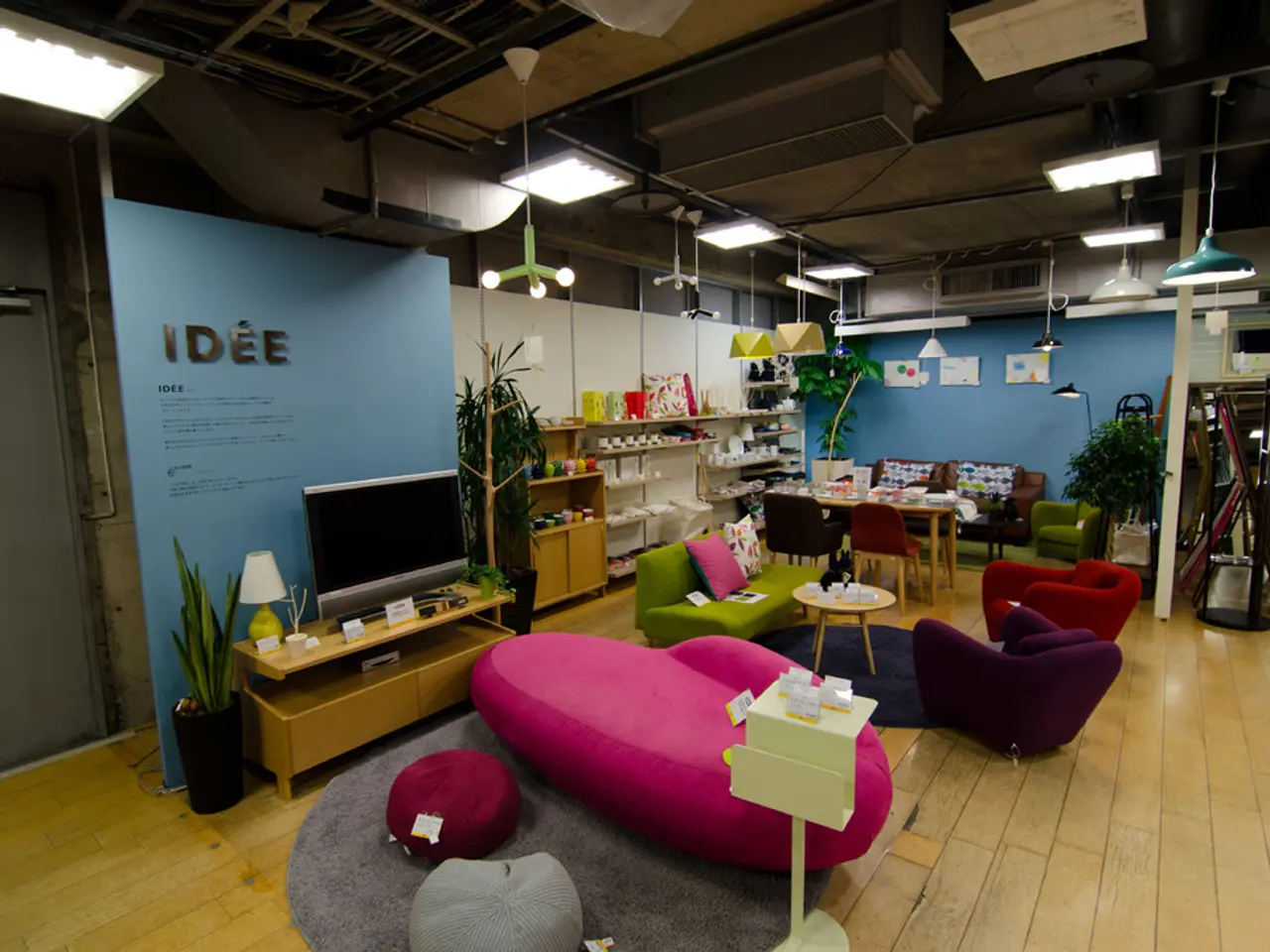Advancement of Home Intelligence Systems
In the ever-evolving world of technology, the latest advancements in smart home technology for 2025 are set to revolutionise our living spaces. The focus is on AI-driven automation, advanced security, and smart energy management, all geared towards sustainability.
With AI now enabling homes to learn from users' behaviours, lighting, temperature, and appliances can be automatically adjusted to enhance convenience and energy efficiency. Leading brands like Samsung have launched AI-powered appliances that sense usage patterns to optimise their functions and reduce waste, such as refrigerators that recognise food types and track expiration dates.
Sustainability developments are another key area of focus. Smart energy management systems are designed to significantly cut energy consumption and carbon footprints. Smart thermostats and AI-controlled HVAC systems tailor climate control to occupancy and habits, saving energy costs. These innovations have the potential to save homeowners up to $1,300 annually on electricity bills and reduce greenhouse gas emissions.
Accessibility improvements are also a vital trend in smart home technology. Agentic AI is being leveraged for hands-free control, personalised assistance, and health monitoring. This supports people with mobility or health challenges by automating tasks based on sensors detecting presence or routines, offering medication reminders, and integrating health metrics from wearables.
Looking to the future, smart homes are moving towards fully integrated ecosystems combining AI, IoT devices, and blockchain for secure transactions in real estate. This offers enhanced security, efficiency, and transparency. Industry standards like KNX automation are evolving to accommodate these technologies and promote wider adoption in building automation.
In summary, the key future developments in smart home technology and sustainability include:
- AI-powered, adaptive home automation that learns and predicts user needs for comfort and energy savings.
- Smart appliances with inbuilt intelligence to optimise resource use and reduce waste.
- Advanced energy management systems delivering substantial cost savings and lowering environmental impact.
- Accessibility-focused AI solutions enhancing independence for users with disabilities.
- Integration of blockchain and evolving building automation standards for security, transparency, and seamless smart ecosystems.
These trends signal a shift towards homes that are not just automated but truly intelligent, sustainable, and supportive of diverse user needs. Knowing that their actions contribute, even in small ways, to a healthier planet makes this journey feel incredibly meaningful for many.
Moreover, the integration of groundbreaking devices and pursuit of sustainability initiatives can enrich lives and deepen connections with loved ones. Smart home technology fosters harmony within living spaces, enhancing communication and collaboration among family members.
From dimming lights to welcoming visitors with a voice, smart home technologies like smart speakers, advanced security systems, and home control via phone or voice commands, transform day-to-day experiences. Examples of smart home innovations include smart refrigerators, automated lighting systems, and smart thermostats.
Stepping into the world of smart home technology can present challenges, such as ensuring device compatibility. However, the benefits of energy savings, sustainability, and improved accessibility make the journey worthwhile. As we embrace these advancements, we are paving the way for a future where our homes are not just spaces to live, but truly intelligent, sustainable, and connected ecosystems.
[1] Smart Home Market Report 2025 [2] Accessible AI for All: The Future of Smart Homes [3] Samsung's AI-Powered Appliances: A Game Changer in Smart Home Technology [4] The Role of Blockchain in Smart Home Technology [5] The Environmental Impact of Smart Homes
- In 2025, advancements in smart home technology aim to revolutionize living spaces, with a focus on AI-driven automation, smart energy management, and sustainability.
- AI now allows homes to adapt to users' behaviors, automatically adjusting lighting, temperature, and appliances for enhanced convenience and energy efficiency.
- Leading brands like Samsung have begun releasing AI-powered appliances, such as refrigerators that recognize food types and track expiration dates, to optimize functions and reduce waste.
- Smart energy management systems are designed to significantly cut energy consumption and carbon footprints, with smart thermostats and AI-controlled HVAC systems tailoring climate control for occupancy and habits.
- Accessibility is a key trend in smart home technology, with Agentic AI being used for hands-free control, personalized assistance, and health monitoring, supporting those with mobility or health challenges.
- The future of smart homes includes the integration of blockchain and IoT devices for secure transactions, enhancing security, efficiency, and transparency in real estate and building automation.
- As we move towards fully integrated smart home ecosystems, we are paving the way for harmony within living spaces, improving communication and collaboration among family members through devices like smart speakers, advanced security systems, and home automation via phone or voice commands.




